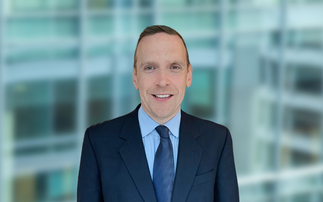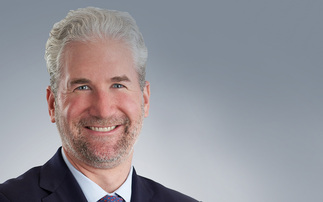The final chapter in the series from Standard Life Investments looks at current opportunities to be found in emerging markets.
Our panel includes Standard Life Investments fund managers Alistair Way and Mark Vincent, as well as economist Alex Wolf, Nathan Sweeney from Architas, Meena Lakshmanan from Vestra Wealth, Neil Shillito from SG Wealth Management, and Alex Scott from Seven Investment Management.
How can investors make money in emerging markets in 2015 and beyond?
Meena Lakshmanan: Our focus is very much on active management. We feel the benchmarks in emerging markets are skewed towards countries we don't want to be invested in like China and South Korea. We are very positive on India, which is a very small part of the index, so are looking for active management and sectors that can benefit from the structural change happening.
Nathan Sweeney: We definitely see opportunities within India but at a headline level, we are slightly cautious on emerging markets. You're seeing GDP growth slowing in some of the key areas such as China, but on the flipside, there have been GDP improvements in India. From our perspective, it is about selecting good managers focused on core opportunities within emerging markets.
Neil Shillito: What interests me about the whole debate is the fact we are stuck with emerging markets as a label, but in fact, the individual countries are emerging themselves and you wonder why we tag them under one definition.
India is an interesting one. Modi's the first Prime Minister since independence that has actually really grasped the nettle and it's quite exciting. We support active managers because it is their job to decide whether they are going to be overweight China and underweight India and so on. We are very positive on emerging markets but it is a longer-term thing rather than a six-month view.
Alex Scott: We view emerging markets as a core asset class, on both the equity and bond sides. I also think there is a real tactical opportunity in terms of the wider-than-average risk premia in a lot of these markets. Valuations are good and if an asset allocator can get down to a regional or a country level as well, those opportunities become even clearer.
Alex Wolf: Over the coming year, a lot of economic growth and earnings growth will be driven by productivity gains. One of the themes we've talked about is politics and most of these reforms, ultimately, are about increasing productivity in the economy, just like the goods and services tax mentioned in India.
With the embedded technology, emerging markets are able to develop much quicker than developed countries did. India is great example, opening bank accounts using the new identification system based on biometrics. That bank account is tied to their cellphone and they're able to make purchases so we are seeing huge leaps in terms of efficiency and productivity.
Alistair, what other innovation have caught your attention?
Alistair Way: There is so much positive change happening in emerging markets: the boom in smartphone penetration, e-commerce and alternative energies such as the potential boom in electric vehicles. These are all positive changes but are not well represented in the benchmark emerging market indices.
To get the best of emerging markets, you have to get off the beaten track, away from the blue chips and state-owned enterprises, and into small and mid-caps and some of the less well-covered frontier markets. You have to take a bottom-up approach to get the most dynamic changes.
Mark Vincent: It is worth saying a word on stability as well. We've talked a lot about positive reform but sometimes coming out of a bad situation into a more stable environment can be very positive. Egypt has been a great market but before the oil price was a factor here, just having a more stable situation enabled very significant equity returns.
Thailand would be another example: we had the coup but it was fascinating meeting Thai businessmen immediately after that as they were so excited about being able to get things done. Stability allows entrepreneurship to function and that's what we are looking for in investments.
Could you address the active/passive question when it comes to emerging markets? With growing diversification between countries and less efficient markets overall, the argument for active seems stronger than in the developed world.
Neil Shillito: I agree entirely. Emerging markets as an area, as an asset class, cannot in any way be represented by an index and I passionately believe active stock picking is what provides the returns. You cannot say Vietnam is like Indonesia or India, it's completely different.
The example that Mark's just given where we were all panicking because there's was a coup in Thailand while the Thai entrepreneurs were positive simply cannot be represented in an index and I think active fund management in emerging markets is crucial.
Meena Lakshmanan: Take the equity indices in Asia for instance, the bigger stocks are the Chinese, banks and the petrochemical companies. They are very cheap so on an index level it looks very cheap, but where you want to be invested is technology and the banks in India, which are not well represented in the indices. So there is a case more than ever for active management in emerging markets.
Nathan Sweeney: I think the answer is yes and no. If you think about it fundamentally, if you're an active manager, you have the ability to go out and select potentially the best stocks, but some active managers also get it wrong.
From our perspective, it's important that we select managers who have a track record in getting it right and outperforming the benchmark over time. If you look at emerging markets in general, they can be quite volatile so over some periods you can find passive will actually outperform the average active manager - for us, it is all about finding the best active managers.
Alex Scott: There is clearly an opportunity set for active managers, particularly outside the big benchmark names. The trouble is, we think that is a difficult opportunity set for most managers to exploit: it's costly, hard to find the right stocks and there are risks of getting it wrong.
We think there's a place for active and passive but index investment does not have to be the global emerging market benchmark. There is scope for an asset allocation process to make regional and country level choices so active and passive can mean different things in that sort of context.
Where are the SLI managers seeing the best opportunities? Would you agree with the suggestion many of the most interesting areas are outside the large index names?
Alistair Way: Specifically on the internet and e-commerce within that, the bulk of companies have been listed on developed market exchanges, principally NASDAQ, partly because of a more informed investor base. This means some of the most exciting opportunities have not been part of the benchmark and it is intriguing the extent to which MSCI is starting to realise that and is changing the mainstream emerging market indices.
So, the likes of Baidu, Alibaba, and companies like VIP Shop are now going to become index stocks and potentially looked at by a wider cross section of individuals.
It's not just China. With a company like MercadoLibre, the eBay of Latin America, although a large proportion of its business is done in Argentina and Venezuela - poor countries from a macro perspective - it has still been a successful investment because the power of stock-specific change has been enough to offset the macro disadvantages.
India has been mentioned right throughout the debate, how does the panel see environmental issues impacting on its Growth?
Meena Lakshmanan: It definitely has an impact, but we should think about it as an opportunity as well. Countries like India are leapfrogging in technology terms, be it cleaning pollution in the Ganges or 4G networks.
How does the panel feel about China in regards to growing concerns over a bubble emerging?
Nathan Sweeney: China is coming from a period of boom to a landing so the key question is how rough that landing will be.
If you look at GDP growth, it is definitely slowing within China and the forecast for this year is lower again. We have seen a lot of investing in specific segments of the Chinese market, whether housing or loans on the banking side, so there are things to be wary of. But you have a government with a lot of control and with the ability to implement stimulus.
Alex Wolf: It is important to see China's slowing growth as a good thing. China has grown so rapidly for so long that it is both natural and healthy for the economy to eventually slow down and find a more sustainable rate of growth.
That said though, it is also important to look at the risks and there are big glaring risks in China in terms of the debt build-up. They are making improvements but cannot just stop the growth of credit because the economy would slow down much more rapidly than they would like.
Reform on this front has been slow and I would expect it to speed up over this year.
It is important to keep an eye on debt and there are a lot of risks in the economy but generally, I think slowing growth is a good thing.











